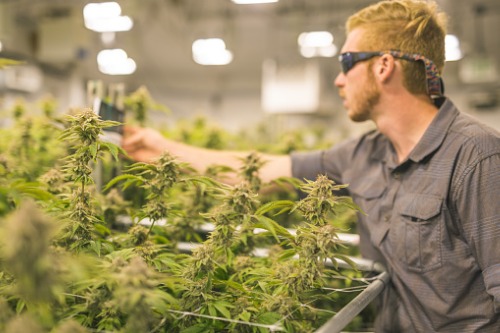Advocates call for policies that put the substance on the same level as other medically authorized treatments

While many regard the legalization of cannabis for recreational purposes as a positive development, a new survey conducted by Abacus suggests that it has had unintended consequences on those who need it most.
“For many Canadians with arthritis, cannabis truly is medicine," said Arthritis Society President and CEO Janet Yale. “It's time the health system treat it as medicine – and that starts with ensuring that patients have timely, reliable and affordable access to the strains, forms and concentrations they need, and that they have the guidance of a health care professional throughout the process.”
In a poll jointly commissioned by Canadians for Fair Access to Medical Marijuana (CFAMM), the Arthritis Society, and the Canadian Pharmacists Association (CPhA), one in four medical cannabis users (26%) said that they are now finding it harder to access the cannabis they need. Because of that, along with other unintended consequences relating to cost and supply, have also forced 64% of medical cannabis users to under-dose or otherwise attempt to conserve their stock.
“Patients need easy access to a safe, affordable, and consistent dose and cannabinoid breakdown for their symptoms and more involved support from health care professionals (HCPs),” said Max Monahan-Ellison, Vice President, CFAMM. "This means treating cannabis like other medically authorized treatments by eliminating tax, improving insurance coverage and HCP training, providing convenient distribution through established medical systems like the pharmacy, and more.”
The new regime, the survey found, has created an environment where recreational users can purchase cannabis more easily than patients who have to rely on the long-established medical marijuana stream.
And while 83% of Canadians accept that cannabis is a legitimate treatment for physical pain and mental afflictions, many patients are now forced to procure pot from recreational sources (44%) or the illegal black market (48%). Others have also reported getting advice from unregulated sources.
The survey also found that a majority of medical cannabis users (61%) self-medicate, potentially leading to harmful outcomes. A core group consisting of 38% of medical cannabis users said they rely heavily on cannabis, identifying physical pain, insomnia, anxiety, stress, and arthritis as the top-cited conditions.
Sixty per cent of medical cannabis users said they take other medications while using cannabis, while 76% don’t believe that doing so would result in any side effects. However, 15% of medical cannabis users surveyed said they have either personally experienced or personally know someone who has gone through side effects from using cannabis in combination with other medications
“It's important to understand how patients may use and access cannabis in order to help them manage their medications and treatment,” said Christine Hrudka, Chair, Canadian Pharmacists Association. “While we can do our part as pharmacists to support patients, what they need is more support from the government, who has left them behind on the road to legalization of recreational cannabis.”



